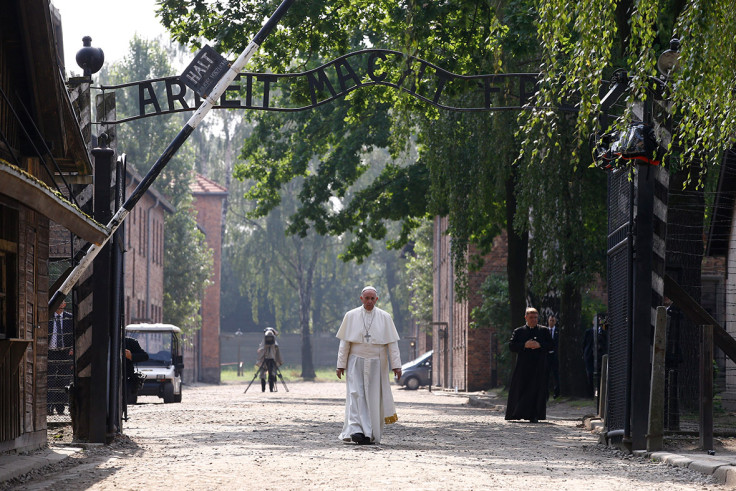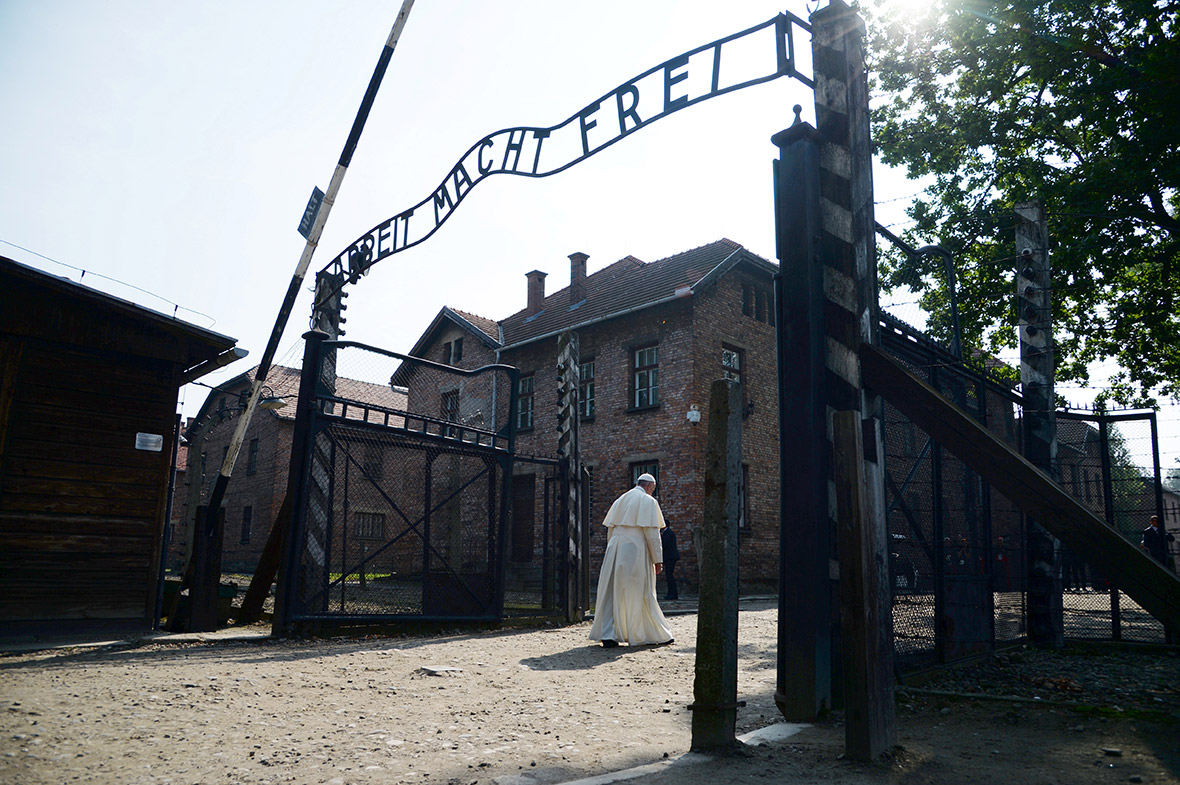Pope Francis visits Auschwitz-Birkenau, the former Nazi death camp
Pope visits the Nazi German death camp where Adolf Hitler's forces killed more than a million people.
Pope Francis has visited Auschwitz-Birkenau, becoming the third consecutive pontiff to make the pilgrimage to the former Nazi German death camp where Adolf Hitler's forces killed more than a million people, most of them Jews.

The Pope walked through the notorious gate bearing the cynical words "Arbeit Macht Frei" (work sets you free). He prayed silently for more than 15 minutes before meeting with several survivors of the camp, greeting them one by one, shaking their hands and kissing them on the cheeks. He then carried a large white candle and placed it at the Death Wall, where prisoners were executed.
He also prayed in the dark underground prison cell that once housed St Maximilian Kolbe, a Polish Catholic friar who sacrificed his own life during the war to save the life of another man.















As an Argentine he is the first pope to visit Auschwitz who did not himself live himself through the brutality of World War II on European soil. Both of his predecessors had a personal historical connection to the site, with John Paul II coming from Poland and a witness to the suffering inflicted on his nation during the German occupation. His visit in 1979 made history and was part of the Vatican's historical efforts at reconciliation with Jews.
Pope Benedict XVI, who visited in 2006, was a German who served in the Hitler Youth for a time as a teenager.
Vatican and Polish church officials said Francis wanted to express his sorrow in silence at the site, mourning the victims in quiet prayer and meditation. This marks a difference from the visit by Benedict, who spoke in Italian — avoiding his native German language — in a speech he which he questioned why God was silent at the slaughter of so many.
This is his third day of the Pope's five-day visit to Poland, which includes meetings with young pilgrims taking part in World Youth Day, a global youth celebration.
© Copyright IBTimes 2025. All rights reserved.






















